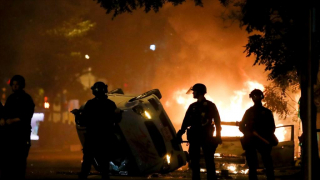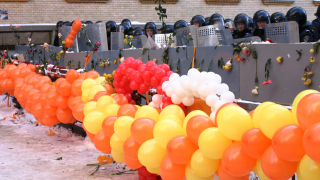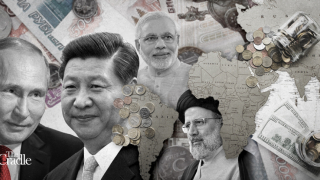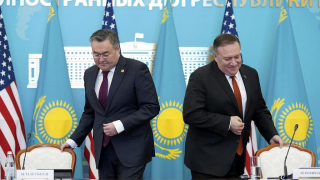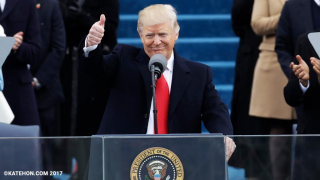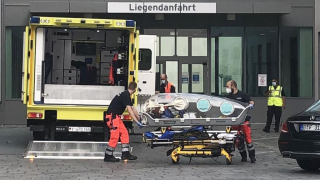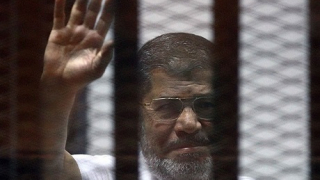Real Situation in Belarus: Anyone for Political and Economic Realities?
28.09.2020
We should understand that there were no “spontaneous knee jerk” mass meetings in response to what was “most likely” less than a free and fair election in Belarus. Everything was planned and paid for, like in Georgia, with the help of outside influences like NED, the US funded so-called National Endowment for Democracy, whose actual work has very little to do with its claimed goals.
Belarus is more of a convenient distraction than anything actually newsworthy; it is an outpost of a system running on autopilot, right smack in the middle of Europe. However, it is the best location to “pick up” where the US left off in Ukraine, and especially if Joe Biden gets elected in November.
One only needs to review the Domino Effect which has afflicted post-Soviet countries and the so-called popular regime change, Colour Revolutions, the Georgian Rose Revolution (2003), the Ukrainian Orange Revolution (2004) and the Kyrgyzstani Tulip Revolution (2005), and later, (second go) 2014, Ukraine, modeled by the Arab Spring.
Those regime changes are mostly forgotten by those who deigned them, and for good reason, as many of the freed countries are now worse off than they were before—the revolutions actually failed in their proclaimed purpose.
What happens next IN Belarus now much depends on US elections, and if Biden is able to replace Trump, some policy makers and regional players would hope for yet another conflict with Russia, or more aggressive efforts to bring about a change. But even if that doesn’t happen, any effort to topple the current government will be effected and funded by outside forces; I am suggesting the US and the West, some NATO allies.
But it is necessary to keep in mind that Belarus and Russia are military allies. This fact prevents another fake Colour Revolution, with Victoria Nuland passing out the cookies, as we saw in Ukraine in 2014. A non-NATO-controlled or manipulated Belarus is absolutely essential for Russia's security, and no one wants to run the risk that it is prepared to defend it.
We should also consider why now, and why all the fanfare over a less than free and fair election. Just look around and you will see that countries like Turkey, Azerbaijan and Georgia also have dismal human rights records, reports of rigged elections, and low levels of democracy. But it’s alright for them: nothing is being said by the West, at least directly, and blind eyes are turned (and even tightly shut).
For now Belarus is like a chicken with a speck of blood. Other chickens in the flock will take notice of it and begin to peck at it, and if not stopped, they will collectively peck it to death. When aggressive chickens draw blood, as in Ukraine, they go a little berserk. The sight of blood sends everyone into a feeding frenzy and they attack the wounded bird in mass. The more blood there is, the more they attack—and everybody gets in on the act (for the final kill).
For the West, it is good for another country’s political system to be divided, and the people divided with it; this is how foreign countries, especially the US, can meddle in its internal affairs with impunity. It does not matter which government, which political party or group of parties, is in power in a given country - no one party or block cares about what is best for their countrymen once they seize power by force, because their priority has to be to defend themselves by force.
Making Hay Whilst the Sun Shines!
Once installed, particularly if it has international support and most locals see it as a change for the better, the new power is preoccupied with consolidating that power and “making hay whilst the sun shines.
”One only needs to consider the scripted language coming out of the EU, which bears all the hallmarks of being a State Department policy statement template, lightly adapted for any given country: We do not recognise him [Lukashenko] as the legitimate president. Nor do we recognise Nicolas Maduro. From this point of view, Maduro and Lukashenko are in exactly the same situation. However, whether we like it or not, they control the government and we have to continue dealing with them, despite not recognising their democratic legitimacy.”
Josep Borrell, EU Foreign Policy Chief.
Georgia and Ukraine are case studies of what results from sudden change: it destabilises an already unstable situation, and prevent the evolution of a system which would allow real change. What is happening in Belarus is a formula for hardship and economic shock therapy, which will be conducted by international organisations and missions, and will consist of rapid privatisation into the hands of reliable extra-state actors and “structural adjustment” policies imposed on the people, of course, … “for their own good.”
It is high time for real change in Belarus, but its purpose should be to prevent another feeding frenzy such as has happened in so many countries. Let’s hope that the ongoing events are a wake-up call for Lukashenko, and the country will not go the way of other former Soviet Republics, into the chaos and economic deprivation, mass outflows of human capital and a simultaneous “brain drain” which their populations have been told to accept for the sake of “freedom,” as if this is how things are supposed to be.
The EU Foreign Policy Chief says that the EU has no intention of turning Belarus into a second Ukraine, adding that “we have to promote political reform and avoid appearing as a distorting factor.” In layman’s language, this means paying extra state actors to destroy the country so the politicians don’t get the blame, and can walk in pretending to restore the very normalcy they took away, using the time honoured methods of Count Cavour, who paid Garibaldi to go on the rampage and then jailed him several times for doing it.
Been there, done that!
It is interesting how the same players who were involved in Ukraine are now working to bring Freedom to Belarus. Some Georgian Facebook sites, such as Georgian Wanderers, have become a platform for organising protest in support of Belarus, but when a colleague shared information about a web seminar on the sociology of protest conducted by international experts, which used Belarus as an example, it was deleted for going against Facebook community standards and having nothing to do with events in Georgia.
However, posts about Belarus from the Lithuanian Embassy, which has close ties to Poland, are allowed to go unchallenged. It is not hard to line the ducks up, as adding to hysteria opens the door to capitalising on raw emotions for one’s vested interests.
As the protests continue, it is not a question of whether Lukashenko won the election but by what percentage. Lukashenko has the situation only too well under control, at least for now. But the usual suspects, a famous line of a famous line of dialogue, from the 1942 film Casablanca, are back at work, trying to take advantage of the general dissatisfaction with the government, and the direction the country has been going in for a while.
There is no doubt that the Lukashenko government has its faults, but it remains the only constructive political power in Belarus. Despite its location it has been saved from the hard road other former Soviet Republics have gone down, and largely through its own devices, as Ukraine was once allowed to do. It needs to adapt to change, and that stands true for all governments, but if it wants its previous efforts to leave a positive legacy, it will be able to do so.
What’s noteworthy, according to some well-followed pundits, who share the same name as the arch enemy in Orwell’s 1984, “is the high level of organisation behind the protests that makes it exquisitely dubious for them to be “accidental” and home grown. It is for this reason, and based on the previous track record of regime change, or efforts in that direction in other former Soviet Republics, that President Alexander Lukashenko is right when he claims that “outside aggression had been committed against Belarus.””
No one even hides the fact that aggression is being carried out against Belarus, and not only by the US State Department, EU and NED but those who see an opportunity in it – Lithuania, Latvia and Ukraine, under the guidance of Poland. This predictable alliance of “wannabes” has not been able to gain much traction elsewhere - in Georgia, they bet on the wrong horse in the form of Mikhail Saakashvili for too long. But Belarus is a way forward for this loosely tied alliance, one whose members are tired of being second or third fiddle elsewhere, to get back in the game in their own right. They want to get at Russia indirectly, albeit at the expense of the people of Belarus.
The EU and the Trump administration, as a matter of policy and pubic statements, are currently too preoccupied with other fires at present, many of these being domestic, especially in the cases of Germany and France. The crackdown on the yellow vests in France makes this an inopportune time to be preaching, “do what I say and not what I do.”
But this gives the wannabes a chance to show they can do a job, like the apprentice gangsters working for the big boys on the docks. Few real players in the EU have the means, interest or fortitude to heat up this situation any more than it already is.
This leaves Poland and its little friends as the proxies of aggressive US policy in Europe, which is basically “poking the bear.” The point of the stick will be much sharper should the Democrats win the White House, and small countries always see changes in major ones as potential opportunities for geopolitical advancement.
But can the events in Belarus be compared to that fruit vender setting himself on fire out of protest over corruption in the market in Tunisia a few years ago? Even if the protests are successful, from a Western point of view, what will be the short to medium term results for the people and the region?
Freedom and Democracy!
As the joke runs in many former Soviet countries, “why are there no revolutions in the USA? Because there are no American Embassies there.” If you look at all those can remember (with the notable exception of Iran) and what they brought about, you will indeed see an inexorable tide pulling the world towards US policy, by whatever means necessary.
Until a generation ago, if you asked anyone what sort of person would use the word “revolution”, they would assume it was a young and humourless far left activist, who thought theoretical socialism was the answer to everything, or rather a convenient self-fulfilling system to hide their lack of real knowledge behind. The idea that revolution would make dozens of countries more Western and capitalist would have appeared ludicrous to members of the Peace Corps (Ambassador Christopher Stevens Memorial Fund), or those whose staple diet was Voice of America (VOA) and Hollywood (American Sniper).
Efforts are being made to paint the Belarus protests not as some choice between the EU and Russia, as was the case in Ukraine, but the protests being all about freedom and democracy. There is no freedom in changing governments by force of arms, and no democracy until the ones who take over choose to give it, on their say-so, not that of the people.
Everyone knew this once, because all revolutions were regarded as an extension of the Soviet one. It remains very sad that the first people to forget these truths were the same former Soviet states who had the greatest reason to know them.
Neither the US or the EU want anyone else catching the same liberal democracy they hold as their highest ideal, as their foreign policy adventures have shown time and again. There is little doubt as what Belarus actually means to those who like to stir the pot… it is the pot!



